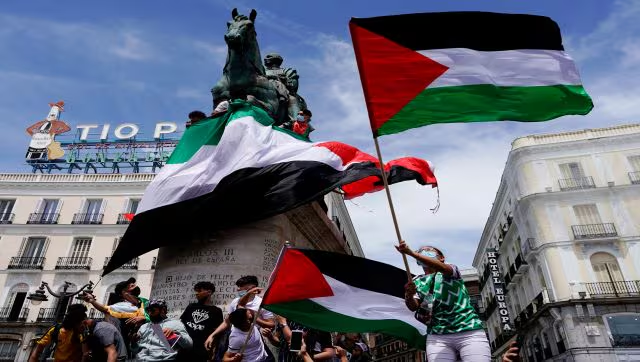Spain, Ireland and Norway said Wednesday that they would recognize a Palestinian state on May 28, a step toward a long-held Palestinian aspiration that came amid international outrage over the civilian death toll and humanitarian crisis in the Gaza Strip following Israel’s offensive.
All three European leaders stressed the importance of having Palestinian statehood in reaching a two-state solution in the Middle East, a decades-long goal that the international community has failed to achieve.
The Israeli government slams talk of Palestinian independence as a “reward” for the Hamas 7 October attack on southern Israel that killed around 1,200 people and led to the abduction of over 250 others. It rejects any move to legitimize the Palestinians internationally.

Steps like the ones by the three European countries Wednesday will harden the Palestinian position and undermine the negotiating process, Israel says, insisting that all issues should be solved through negotiations.
Currently, seven members of the 27-nation European Union officially recognize a Palestinian state.
Some major powers have indicated their stance may be evolving amid the outcry over the consequences of Israel’s offensive in Gaza, which has killed more than 35,000 Palestinians according to Gaza’s Health Ministry.
British Foreign Secretary David Cameron said no recognition of a Palestinian state could come while Hamas remains in Gaza, but that it could happen while Israeli negotiations with Palestinian leaders were in progress.
France indicated that it isn’t ready to join other countries in recognizing a Palestinian state, even if it isn’t opposed to the idea in principle. French Foreign Minister Stéphane Séjourné, in comments relayed by his ministry after a closed-door meeting with his Israeli counterpart on Wednesday, said that recognizing a Palestinian state must be “useful” in pushing forward a two-state solution and suggested that doing so now won’t have a genuine impact in pursuing that goal.
Israel reacted rapidly recalling its ambassadors to Ireland, Norway and Spain.
Why does it matter?
It suggests a growing international consensus that Palestine is entitled to statehood. Additionally, it could potentially lead to increased pressure on Israel to negotiate a peace settlement with Palestine.
he 1948 UN decision that created Israel envisaged a neighbouring Palestinian state, but some 70 years later control of the Palestinian territories remains divided and bids for UN membership have been denied.
The United States, Britain and other Western countries have backed the idea of an independent Palestinian state existing alongside Israel as a solution to the Middle East’s most intractable conflict, but they insist Palestinian statehood should come as part of a negotiated settlement. There have been no substantive negotiations since 2009.











Comments 3